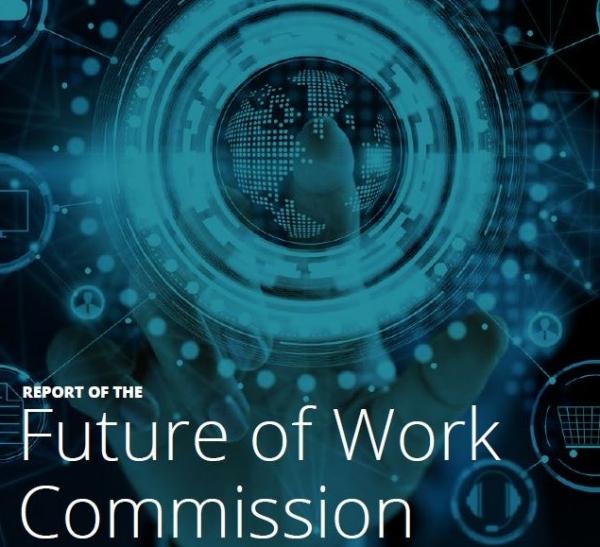The State of Workplace Experience
HqO have collaborated with Verdantix for their most recent in depth report on the evolving global landscape of commercial real estate, with both the views of property...
Read Full Article
Innovations in digitisation, computing, artificial intelligence and robotics lie behind many wider transformations in the future of work according to the Future of Work Commission (FWC) - and we are already experiencing these transformations.
The FWC thinks that both the scope and pace of the current technological revolution are likely to be at least as great as any that has gone before.
To read the Report Executive Summary - Click Here
Extract from Executive Summary
Recent advances make it possible to automate a much greater range of tasks than those enabled by previous developments. This means that the current wave of automation will reach into sections of our economy that have traditionally been considered 'safe', including jobs which involve complex cognitive or analytic tasks. New technologies are increasingly capable and pervasive. The pace of technological advance has increased and the fusion of new technologies – in particular, recent developments in machine learning combined with the data explosion – may make change faster than before.
Our research suggests that the impacts and risks of technological change are not widely understood and workers and employees hold different views about the likelihood and pace of automation in particular spheres.
Automation will undoubtedly affect different sectors and regions in very different ways. Nevertheless, we have identified the following trends in the UK labour market:
APSCo Responds to Future of Work report
Following publication of the Report, Tania Bowers, General Counsel at the Association of Professional Staffing Companies (APSCo), said: “As a trade body for professional recruiters, many of which supply into STEM sectors, we appreciate the recognition in the report of technological advances in the work place and the subsequent need to invest in skills training. We also recognise the importance of quality work as a key driver for the economy and we know that professional contracting offers good work to individuals and drives productivity in the economy.
“However, we are concerned that the report recommends working towards just one category of ‘worker’ for enjoying employment protection in UK law. The report advises that any change in national insurance or tax contributions by the self-employed should go hand in hand with these new rights and safeguards, but many professional contractors simply don’t want or need these protections.
“The report does not differentiate between vulnerable workers who are forced into false self-employment and those incorporated professional contractors who operate in the professional STEM market. We do recognise the need for professional contractors to be in a financial and legal position to provide for their pensions, sick pay and holiday pay, particularly if there is a political push for greater numbers of these incorporated contractors to be taxed as deemed employees. However, this must not be at the expense of flexibility in the labour market.
“We also refute the suggestion that the rise in a typical working and self-employment has been ‘largely the result of the UK tax system’. The senior professionals our members place choose to work flexibly for a variety of different reasons.”
Picture: Cover image of the Executive Summary of the most recent Report of the Future of Work Commission
Article written by Brian Shillibeer | Published 18 December 2017
HqO have collaborated with Verdantix for their most recent in depth report on the evolving global landscape of commercial real estate, with both the views of property...
Read Full ArticlePolyteck, a leading London-based construction and facilities management business, has today announced that it will be accepting Bitcoin as a form of payment from clients...
Read Full ArticleOver half of UK adults say that they are ready to learn new skills or completely retrain in order to improve future employability - only 11% say they are not. Yet...
Read Full ArticleThinkFM, that stalwart of the FM industry conference calendar is no more. The Institute of Workplace and Facilities Management has announced a national summit operating...
Read Full ArticleConveniently coinciding with BIFM's London ThinkFM conference (May 1), Sodexo, released its 2018 Global Workplace Trends report (on April 27), featuring fresh...
Read Full ArticleManagers are not prepared for the moral questions that rapidly advancing technologies pose, according to a roundtable held at Nyenrode Business Universiteit...
Read Full ArticleA European research project led by Chalmers University of Technology has launched a set of tools that will make computer systems more energy efficient – a critical...
Read Full ArticleOn Wednesday, Microsoft unveiled a new generation of Windows, with a free upgrade from Windows 7 and 8.1 and Windows Phone 8.1 available to customers running Windows, who...
Read Full Article